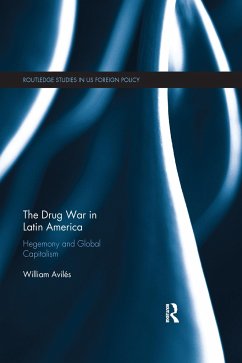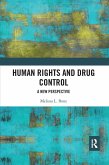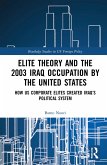Since the mid-1980s subsequent US governments have promoted a highly militarized and prohibitionist drug control approach in Latin America. Despite this strategy the region has seen increasing levels of homicide, displacement and violence.
Why did the militarization of U.S. drug war policies in Latin America begin and why has it continued despite its inability to achieve the stated targets? Are such policies simply intended to impose U.S. power or have elites in Latin America internalized this agenda as their own? Why did resistance to this approach emerge in the late-2000s and does this represent a challenge to the prohibitionist agenda?
In this book William Avilés argues that if we are to understand and explain the militarization of the drug war in Latin America a 'transnational grand strategy', developed and implemented by networks of elites and state managers operating in a neoliberal, globalized social structure of accumulation, must be considered and examined.
Why did the militarization of U.S. drug war policies in Latin America begin and why has it continued despite its inability to achieve the stated targets? Are such policies simply intended to impose U.S. power or have elites in Latin America internalized this agenda as their own? Why did resistance to this approach emerge in the late-2000s and does this represent a challenge to the prohibitionist agenda?
In this book William Avilés argues that if we are to understand and explain the militarization of the drug war in Latin America a 'transnational grand strategy', developed and implemented by networks of elites and state managers operating in a neoliberal, globalized social structure of accumulation, must be considered and examined.
"In this compelling new study, Professor Avilés moves us beyond the established explanations for the drug war in Latin America. He shows how this war came about through the "grand strategy" of an entrenched transnational policy network to integrate the region into the political economy of global capitalism. A powerful indictment of the prohibitionist paradigm, the work will be of great interest to scholars, journalists, and policymakers. If you want to understand what and who are behind the drug war in Latin America, read this book." - William I. Robinson, University of California in Santa Barbara, USA








